News
On this page, you'll find a collection of past and upcoming events organized by our association. Our goal is not only to introduce your children to the Chinese language and culture, but also to convey a sense of community and belonging to both you and your children.
The Lego Movie Premiere
This may be the debut work of the youngest team in history!
The charm of movies is not limited to age, nor does it belong only to Hollywood. At Ba Academy, the young directors, whose average age is less than 10 years old, have completed their stop-motion animation films in the Lego animation class and welcomed their own premiere!


The “rules of play” for this course are very simple - all stories, roles, and even shooting plans are decided by the children themselves!
Teachers? They are not tools, but guides for the children. Teachers Xiao Shao and Hong Ye are responsible for teaching the core knowledge of stop-motion animation, providing creative inspiration, and ensuring that every child can learn real skills. The entire course covers many aspects of stop-motion animation:
1. Get to know Stop Motion Pro stop-motion animation software and master its basic operating skills.
2. Learn basic shooting techniques and let children learn how to make the lens more expressive.
3. Screenwriting and sound design, from story creation to sound matching, hands-on practice throughout the process.
4. Get started with post-production and learn how to edit and adjust images to make your videos more enjoyable.
The daily work of "directors": online all the time, constant disputes
There is a saying in the film industry: "A film crew is a war." This statement was perfectly verified at Ba Academy.
When there were disagreements during the filming process, the young directors worked hard to express their own opinions and strive to realize their ideas. The choice of all the music was also the result of joint discussion.
Therefore, while the children truly experienced different roles such as director, screenwriter, dubbing, etc., they also carried out perfect teamwork (does it sound like you when you completed team assignments in college?). It was a training in leadership and teamwork!
Dubbing challenge: pay attention to every detail word by word, and strive for perfection!
After filming the animation, the next step is dubbing - it sounds difficult, but it is not easy at all.
Because the lines are long, the children often need to record them word by word, and if they don't record well once, they will start over. Some young directors even spontaneously ask to record several more times because they are not satisfied with their own tone, striving for perfection, truly achieving excellence.
Premiere: Ba Gakuen's "Oscar Night"
After weeks of hard work, the children's works were finally completed! On February 15, everyone gathered together to witness this exciting moment.


Graphic editor: Cheng Si
Writing and proofreading: Hongye/Xiaoshao
Photography: Zhu Wen
February 17, 2025
[Influence] Fantastic linkage! When Principal Meizi appeared on the famous domestic media
Editor's Recommendation:
Principal Mei Zi's story is the highlight of Ba Academy and also a cross-cultural educational journey. Recently, she was interviewed by the well-known domestic self-media children's book mother Sanchuan Ling. The platform has published more than 5,000 original educational articles with 15 million words and has millions of readers. This interview showed Principal Mei Zi's educational philosophy and made the spirit of Ba Academy visible to more people.

Principal Mei Zi has a rich and special experience.
I dropped out of school at the age of 17 and worked in Shanghai. At the age of 21, I started junior high school again in Germany. Then, at the age of 25, I graduated from high school. Later, I went to college and graduate school. In between, I worked, had children, raised children, and started a business. I graduated from college at the age of 32, graduated from graduate school at the age of 38, and then started a business in my middle age...
Eight years ago, she had just graduated from college and opened her ideal Chinese community school while starting her first full-time job after graduation.
She borrowed the name of the ideal school in "Little Girl at the Window" and named her school "Ba School".
01 She came from an ordinary family and wanted to live a life of "leaving footprints"
Recently, Principal Mei Zi has encountered some troubles.
Her Ba Academy will hold a "Chinese Culture Day" event on January 24. The event will be held at a university and will include four workshops, tea art, calligraphy and Chinese painting, handcrafts, picture book readings, a lecture and a concert in the evening.

But with only a dozen days left before the event, the professor who had been confirmed to give the lecture and the orchestra that would perform the concert half a year ago suddenly informed her that they could not come.
The professor had to return home due to an emergency, and the orchestra simply stood her up. She had no choice but to find a replacement.
One day after our second interview (there were only four days left before the event), Principal Mei Zi sent me a WeChat message to tell me that the substitute lecturer mentioned in the interview had also temporarily dropped out.

"It's really difficult to start a business or do something here," she said.
The entrepreneurship that Principal Mei Zi mentioned is the Munich Ba School, an educational and cultural institution based on Chinese language and culture that she founded in Munich, Germany in 2017.
Simply put, it is a Chinese community school whose target groups are Chinese families in Germany, multilingual and multicultural families where one spouse is Chinese, and local German families. Classes are held every Saturday, teaching Chinese as well as Lego stop-motion animation, programming, art and painting classes, but these courses are also taught in Chinese.
This Chinese school is not large and has not grown rapidly. When classes first opened in 2017, there were nearly 30 students. During the epidemic, there were only a dozen or so left. It experienced great growth last year, but now there are only about 60 students.
But it carries the grand vision of Principal Mei Zi, who told me that she hopes to make Munich Ba School an educational and cultural institution with a "century-old heritage".
Ba Gakuen is the abbreviation of "Bavarian Chinese Language and Culture School". The name comes from "The Little Girl at the Window" by Japanese writer Tetsuko Kuroyanagi, a book that Principal Mei Zi likes very much.

In "Little Miss Window", the protagonist Little Miss Window was expelled from her original school for being naughty and came to an alternative school where students' individuality was valued, classrooms were open and flexible, and students were given space to develop freely. Later, "Ba School" became synonymous with an ideal school.
In terms of income, Ba School is not even a sideline for Principal Mei Zi. In the first few years after Ba School was founded, Principal Mei Zi had no income from Ba School. In 2023, she applied for funding from the German education department for Ba School, and she, as the founder, only had a meager public welfare subsidy income. However, in Principal Mei Zi's heart, Ba School is her real career and her real passion.
For her, this is a platform where she can fully realize her "ideas".
Mei Zi has always wanted to do something that can reflect her life value and "leave footprints".
Although she was born in an ordinary family and even had a rough childhood, as a post-85s, her father did not allow her to go to school and she had to escape to go to school on her own, but she has been an "active thinker" very early on.
She still remembers a sentence she wrote when she was 13 years old, "Is the purpose of living this life just to eat and drink?"
How to achieve "leaving footprints"? She wants to do something that is completely her own.
By "my own business" I mean that I can make my own decisions and see an idea in my head become a "real thing" in reality. In my last year of college, this idea gradually became clearer.
At that time, she was a substitute teacher at a Chinese school, where her son also attended. She felt "very bad" there. The teaching method was traditional rote learning, the management emphasized the hierarchical relationship between superiors and subordinates, and the school also withheld wages. She thought, why not open a Chinese school herself?
She had thought about spreading Chinese culture before, but she had not thought carefully about what form it would take. Now, she has made up her mind and decided to run a community school, a formal institution that runs according to her own philosophy.
She also didn't want to run a business, and she didn't want to make money through education, so she registered Ba School as a non-profit organization.
When Ba Academy was founded, 32-year-old Mei Zi had just graduated from the University of Munich with a degree in education. October 7, 2017 was the official opening day of Ba Academy, and on September 15, she started her first full-time job after graduating from university, as a career counselor in a middle school.

She resigned from the middle school more than a year ago and is now a freelancer. In addition to Ba Gakuen, she also has two other jobs: teaching basic education courses at a university as a part-time worker and providing "agile management" consulting and training to companies.
At the end of 2006, she moved to Germany with her husband from Italy, and they have lived in Germany for nearly twenty years now.
As a Chinese, how to integrate into the local society is always a problem. She found that some of her Chinese friends, especially some of the "second generation of Chinese", have always been ashamed to speak Chinese, "very unconfident", and full of contradictions about their identity.
In her opinion, they are indeed Germans now and have lived here for many years, or they were born and raised here, but "you cannot ignore your Chinese roots, you are influenced by Chinese culture", and she believes that anyone who does not accept their own authenticity is a distortion.
She founded this Chinese school in order to create a Chinese community culture where everyone can accept themselves as they are.
Therefore, what makes it different from ordinary Chinese schools and other educational institutions in Munich is that it places great emphasis on activities.
There are many kinds of activities. Some are for primary school students, for example, organizing everyone to go to the zoo, the teachers prepared questions and lucky draws in advance, so that children can learn about animals while visiting the zoo.
Some are for parents. For example, the school held an anti-discrimination workshop and invited professionals to explain to parents the issues related to racial discrimination and practical skills to deal with discrimination. Principal Mei Zi believes that creating this space for parents is to give children an opportunity to grow up healthily.
There are also activities targeting German society, such as this "China Day" event. Principal Mei Zi wants to "connect" with German society through such activities, providing a channel for local people to understand Chinese culture, so that they can see that "there are similarities in differences and differences in similarities" between each other. Only when they truly understand, will they have a heartfelt respect for their Chinese compatriots and Chinese culture.
02 Dropping out of school also means learning according to your own life needs
Mei Zi became interested in education when she was 17 years old.
That year, she dropped out of the kindergarten teacher training school she attended due to family misfortune and had no money to pay tuition. She went to teach at a school for migrant workers' children in Jiading, Shanghai. She applied for the job not because she had a special interest in being a teacher, but because it would allow her to be farther away from home. During the year she taught, she had a great time with the children and found that teaching was easy for her.
Her work can be summed up in six words: very happy and simple. But that's all.

What touched her most was when she left. The students all knew where she lived, and they stuffed a lot of paper airplanes through the window. The paper airplanes were full of words, all of which were innocent and sincere, expressing their trust in her, their reluctance to part with her, and their longing for her in the future.
She originally wanted to take a year off to earn enough money to pay for her tuition and then go back to school. But a year later, her family was in trouble again and she didn't have enough money to go back to school. After that, she never went back to school to continue her interrupted studies.
During the years she spent in Shanghai, she worked several jobs, first in sales, then as a tour guide, and later, because she could speak English (although she only had a junior high school level of English, she had one big advantage: she dared to speak), she found a job helping a Dutch company liaise with its Shanghai office.

It was at this job that she met her current husband, an Italian who worked for an American company in the Netherlands.
After two years of knowing each other, he proposed to her. She could feel his trust and he gave her a very reliable feeling. She also consulted a lawyer to find out if there would be any risks in marrying a foreigner. She asked the lawyer, "If I marry a foreigner, can I still return to China?" The lawyer gave her a positive answer.
So she entered into marriage at the age of 21 with the mentality of "giving it a try", and this try lasted for twenty years.
The life philosophy of "giving it a try" has always been a part of her work, entrepreneurship and life, and has become an important guiding principle for her when facing unknown challenges. She said: "If you don't give it a try, how can you know if you are suitable?"
Before they got married, they had decided to move to Germany to live together, and she went there.
Mei Zi's nearly twenty years of experience in Germany, to use the Internet buzzword of recent years, is a typical "reverse social clock".

In her second year in Germany, although she was already 22 years old and married, she decided to start over. She first studied in a technical secondary school for one year (roughly equivalent to the third year of junior high school in China), and then went to another high school (Berufsoberschule, a school in Germany that provides higher education channels for students in the vocational education system) to study in the twelfth and thirteenth grades (roughly equivalent to the second and third year of high school in China). When she graduated from high school, she was pregnant, and when she walked into the graduation examination room, the baby in her belly was already eight months old.
At the age of 25, she got her high school diploma and gave birth to a baby.
She has always been a proactive and courageous person.
In Germany, generally speaking, graduates from technical secondary schools cannot go directly to high school; in her case, she needs to spend two or three years learning a profession, such as kindergarten teacher like she studied in China, before she can go to high school.

She wanted to go to high school because she wanted to go to college, specifically, the Department of Education at the University of Munich (she loved the architecture at the University of Munich), and to apply to university she had to have a high school diploma.
She felt that at her age, she couldn't waste another two or three years learning a profession, so she wanted to go directly to high school.
So she went to a high school and found the principal, telling him the truth about her situation, saying, "I don't have that much time in my life." The principal was a little embarrassed, but still gave her a chance. She could go to school for a month, and if she passed the monthly exam a month later, she could stay and continue her studies.
Despite the stress of the first month, she passed, a step that allowed her to skip three years of vocational training and her freshman year of high school.
Another good thing about her is that she always has confidence in her life and never gives up hope for the future.
From the age of 17 to 21, she was forced to drop out of school and work, but she did not feel anxious or discouraged. She felt that there were still many possibilities in her life, it was just that the time had not come yet.
She has always believed that everyone has their own pace of life.

In middle and high school in Germany, despite the academic pressure, she never felt inferior or anxious because of her age, and she never felt that age was a limitation.
Looking back now, she does not regret dropping out of school too much. She feels that society itself is a university, and she has learned a lot from this "university".
During those years, she thought a lot about her outlook on life and the world, and understood the "complexity of society." She sometimes wondered if she had gone back to school to continue her studies, there might have been negative effects, "for example, many sharp edges might have been smoothed out."
When she was in middle school and high school in Germany from the age of 22 to 25, she cherished the opportunity to go back to school and lived a "very happy" life.
After graduating from high school, she first took care of her child at home for nearly two years, and then found a job as a teacher in a church kindergarten. Working 25 hours a week, she could have an income and take care of her family at the same time. When her child was more than three years old, she had worked in the kindergarten for a year and a half. She began to apply for education at the University of Munich and successfully received an offer.

At the University of Munich, she continued to work in a kindergarten for the first half year, and later interned at a Montessori school for half a year. She got the opportunity to work two days a week through the internship. At the same time, she also worked another job at a Chinese school. Therefore, she spent a lot of time in college studying, working and taking care of children. Even with such multiple jobs, she completed the courses that most people take four years to complete in two and a half years (5 semesters).
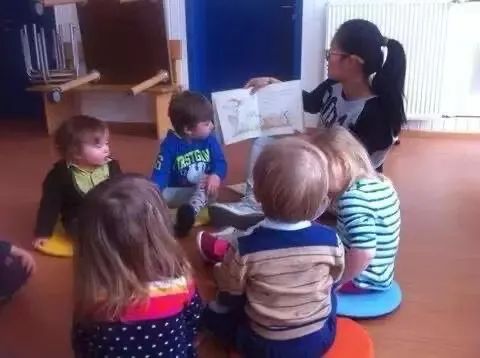
"I think I manage my time very well," Mei Zi concluded.
03 People can only blossom when they are free
The most important and most energy-consuming part of the entire work at Ba Academy is how to stick to one's own ideals in the real environment.
Meizi herself worked in a Montessori school, and her son also attended a Montessori school during his primary school years. She likes the Montessori school philosophy very much. During the interview, she elaborated on the various advantages of Montessori schools, and her Ba School also learned a lot from them.

For example, in Montessori schools, students have a lot of "freedom".
Montessori schools use mixed classes, with students from grades one to four in one class, ranging from 20 to 24 students, taught by two teachers. Half of the day is "free work time."
"Free work time" is equivalent to giving children a complete period of concentration. Montessori schools will have a student card to record the student's state curve during this period. The card specifically divides the student's state into seven states: deep concentration, concentration, work but distraction, quiet, mild restlessness, restlessness, and lack of self-control.
In the "free work time", the teacher will only give a framework, that is, the learning goals set by the teacher for the children every week, but under this framework, the children are free to do whatever they want. Therefore, students have a lot of free exploration and autonomous time.
For example, during this "free working time" this morning, I can study German or mathematics, or do other things I want to do, such as reading, drawing, or doing handicrafts.
When the teacher is teaching, the children are also "free" as long as they don't disturb others, even if they lie on the carpet.
Although Ba Gakuen is not a full-time school, but only an "extracurricular school" with classes on Saturdays, Principal Mei Zi also attaches great importance to creating a free and independent space and atmosphere for the students.
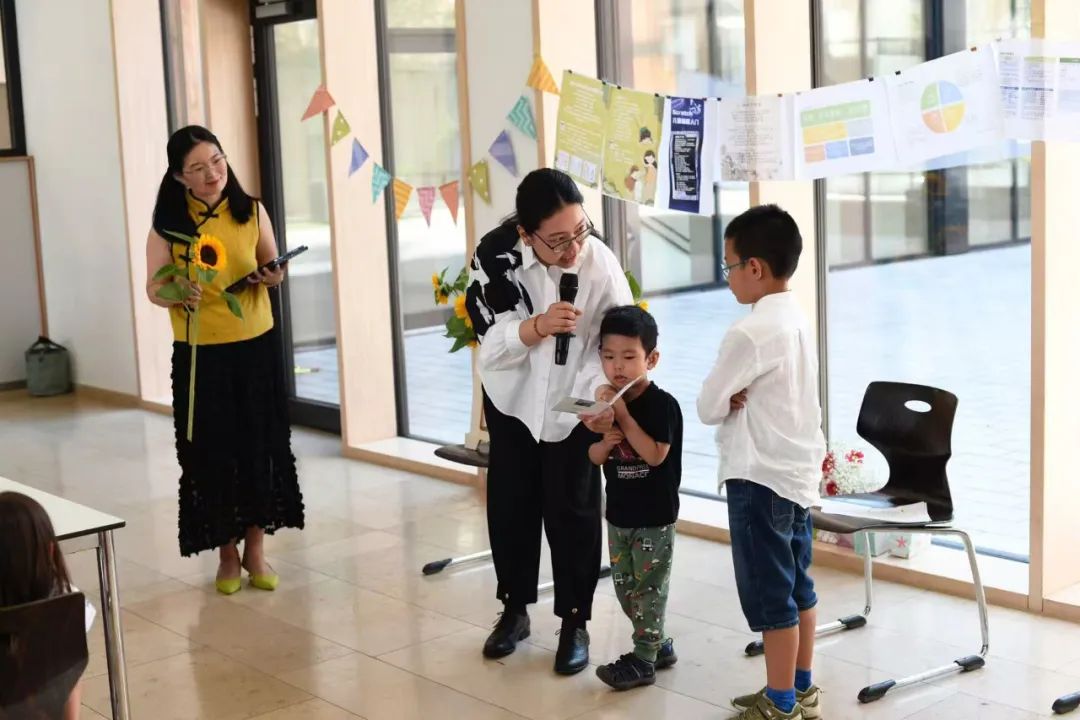
Once a teacher asked the children to sit in rows of two. After she saw it, she immediately corrected it. In Ba School, classes are all round-table style, and this kind of sitting in rows is never allowed, because she hopes to create a relaxed learning state for the children and allow teachers to communicate with the children on an equal footing.
Her own growth experience also taught her that people can only blossom when they are free.
She said that she was once the "worst student" because her academic performance was not good before middle school, and she repeated a year in the third grade of junior high school before she was admitted as a kindergarten teacher. But when she got to the kindergarten teacher, she encountered a small "miracle". That was also a turning point in her life.
The kindergarten teacher was in another city. Perhaps a completely unfamiliar city and environment made the constraints she had in her hometown suddenly invalid. She "suddenly blossomed" and ranked first in the early childhood education department with more than a thousand students in her first academic year.
Principal Mei Zi believes that the reason is that only when a person is free and relaxed can he have the energy to receive and digest external knowledge and information; if he is always in a state of stress, his possibilities are suppressed and there is no way he can bloom.
There are no exams in Montessori schools, and there are no exams in Principal Mei Zi’s Ba School.
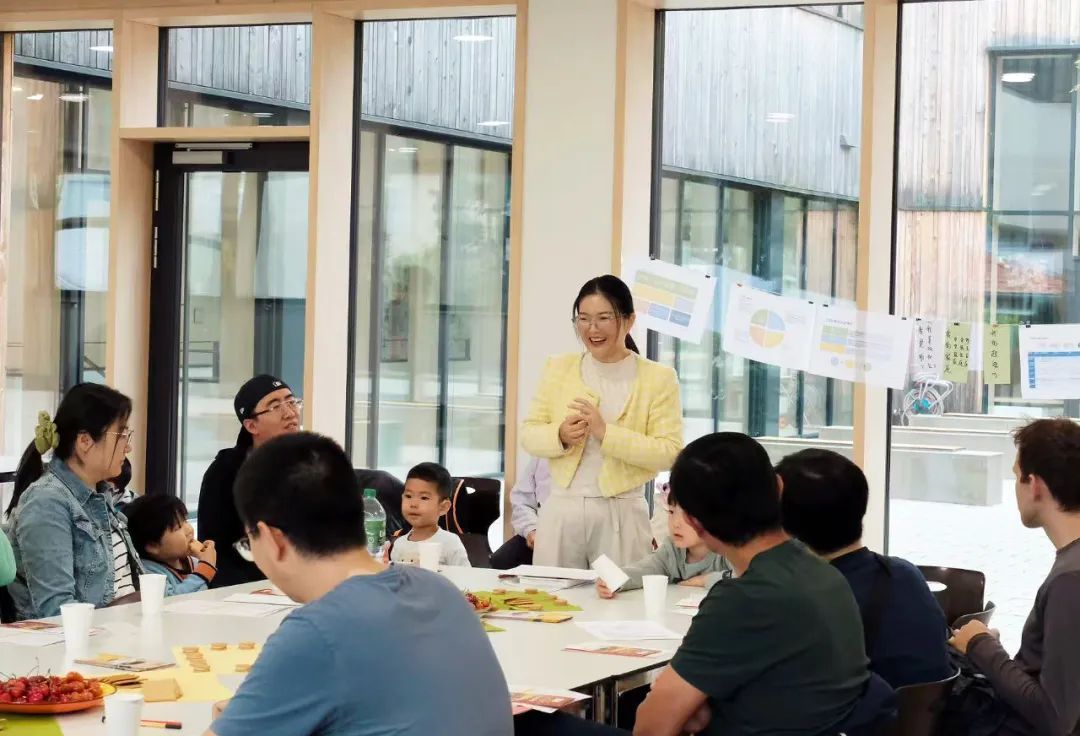
This once caused dissatisfaction among some parents. They felt that only by taking exams could we see the results of their children's learning. Principal Meizi insisted on not doing this. Every time she faced parents in public, she would explain to them that not setting exams did not mean that the requirements of Ba Academy were low, in fact, it was quite the opposite.
Examinations are just a quantitative and general feedback mechanism, while Ba Academy provides feedback every week, but it is not conducted in the form of examinations. Weekly feedback allows parents and children to understand what they have learned this week and what needs to be paid attention to and improved. This is a more specific, full-process and comprehensive feedback mechanism.
The set of ideas that Principal Mei Zi believes in and upholds have supporters among parents, as well as skeptics and opponents, and many "middle-of-the-roaders" who are not so sure.
She once talked about Montessori schools with her German colleague in a consulting company. She said that her son had previously attended a Montessori school and that her own Ba School was also based on the philosophy of Montessori schools. This colleague told her that she did not want her children to grow up in such a protected environment, because life itself is cruel and real life is full of competition and various standards.
Some time ago, she talked about this topic with a Chinese parent. This parent works as an actuary in a large company and is also a successful person in the secular sense. She has a similar view. She thinks Montessori schools will train children to be sheep. "They will be bullied when they leave this society."
Principal Mei Zi responded to this:
"I can understand their concerns, but they forget a very essential element of a child's growth, which is that he needs more love and a more positive environment, so that he will have more energy and ability to inspire himself when he grows up. This is the most essential thing.
"Love is not afraid of too much, but being hurt from a young age is. These are very fundamental underlying feelings that many parents do not understand or are unwilling to believe."
"Children also need respect. If you respect them, you are accepting their state, and then they will slowly change. I believe that children grow up towards the sunshine, they have requirements for themselves, and they hope to become a better person.
Unlike many parents, who think that they must put pressure on their children or tell them what to do in order for them to do something, your initial concept is wrong. In fact, many children can change slowly from within. If they feel accepted in an environment, they will slowly change, and children's changes are very fast. "Principal Mei Zi said.
04 Don’t let your child “waste time”, he will never know what he really likes
It took only one month from the time the idea of establishing Ba School came up to the time the school officially opened.
On the first day of the class, 50 to 60 people came to the site, and nearly 30 students were recruited. Moreover, the "standard" was not low. The mayor in charge of education also came, and the largest German newspaper "Süddeutsche Zeitung" also sent reporters to interview. Principal Mei Zi contacted them in advance, and they were all very interested in a young Chinese woman founding such an "ideal" Chinese education institution.
When she founded Ba Gakuen, Umeko was in a state of "ignorance and fearlessness" and she never even thought that she was "starting a business".
Later, she was hospitalized due to illness. She chatted with a friend, who sighed, "Starting a business is hard work." She then realized that she was starting a business. Now looking back on her seven or eight years of entrepreneurial experience, she feels like she is fighting monsters and leveling up. In this process, she faces all kinds of difficulties and trivial matters at any time. She solves them one by one.
When she first registered the Ba Academy, she did everything herself, from researching legal provisions to writing relevant documents and charters, to finding suitable teachers and venues, etc.
She believes that if you understand the details thoroughly from the beginning when doing something, everything will go smoothly later.
She did this herself. Before preparing the materials, she read all the relevant legal documents on the Internet and took notes. Usually, people would find a lawyer first, but she did it herself, so she "didn't spend a penny."
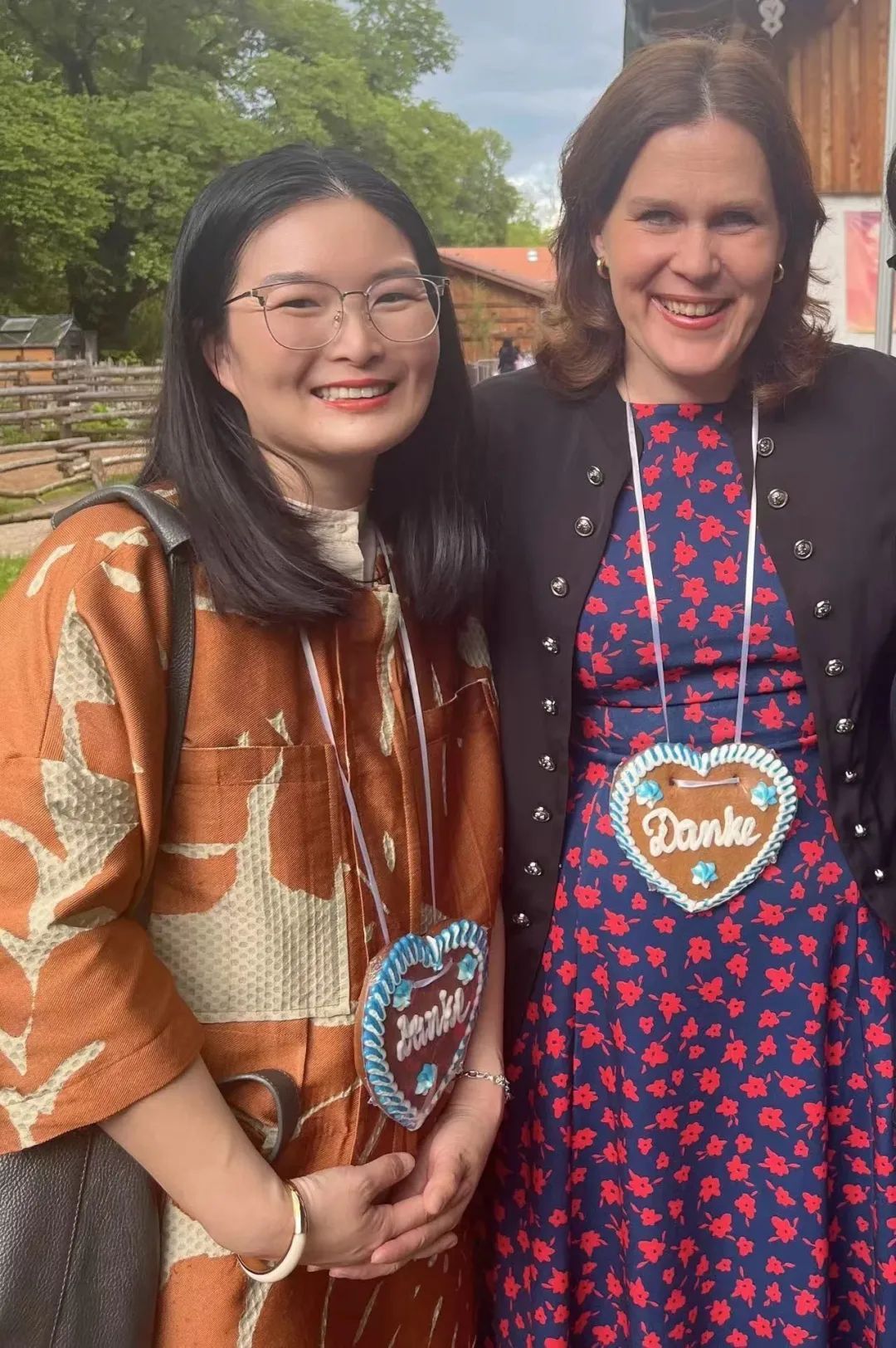
Problems that she needs to deal with may arise at any time. For example, not long after the establishment of Ba Academy, Germany issued a new law related to children's portrait rights. According to this law, children's portraits cannot be used without parental authorization, but Ba Academy's classroom records and publicity on many occasions require children to appear. After she saw this law, she drafted an authorization agreement that night and sent it to all parents the next day.
Mei Zi's three current jobs fit the concept of the "flywheel effect" mentioned by management expert Jim Collins in his book Good to Great. The "flywheel effect" refers to the fact that several seemingly unrelated businesses of a company, once in operation, will produce an effect of interlocking and advancing each other. The relationship between Mei Zi's several jobs is also the same.
Corporate consulting has a "high return rate" in terms of income. For her, one value is making money, and the other is gaining new experiences and broadening her horizons and boundaries.
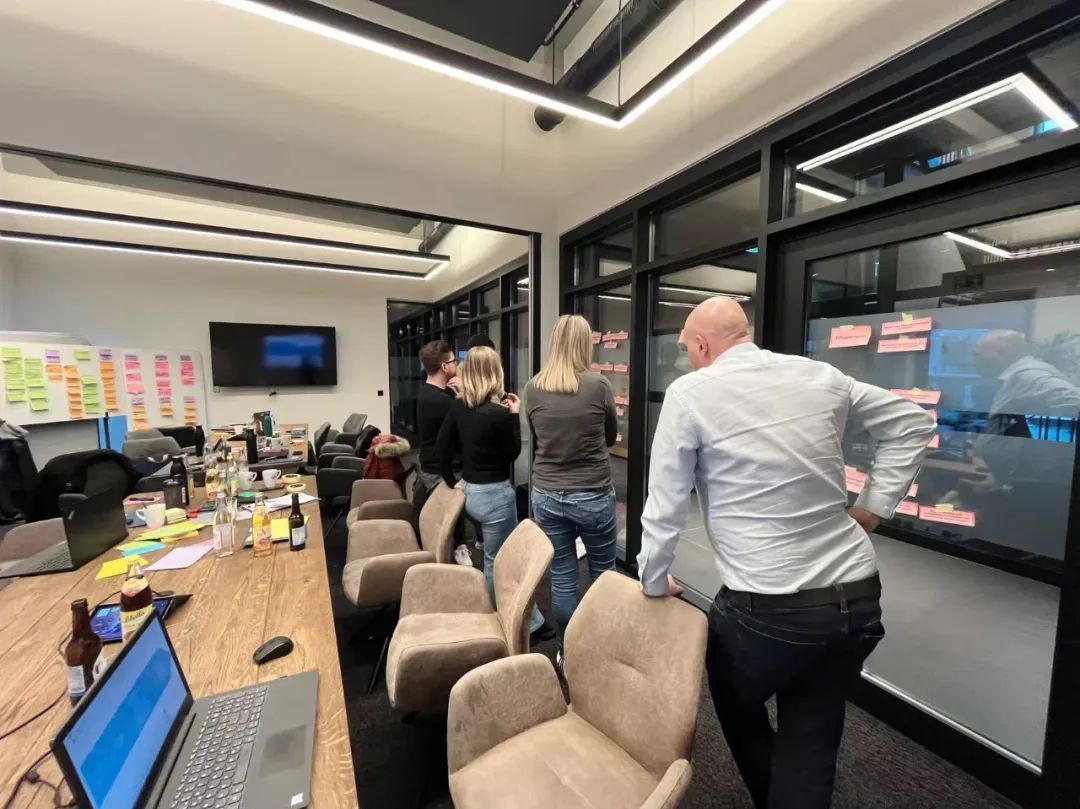
She has never really worked in a company, and by consulting for various corporate clients, she can meet many different people. She once consulted for a world-renowned sports brand, and the customers were all global sales and management elites, including VP-level leaders. Although she didn't envy or look up to them before, she still had a filter in her mind. After really getting in close contact with them, she "de-mystified" a lot.
She found that even among them, only a few had clear thinking and fluent expression, and many people gave her a confused feeling that they "didn't know what they were doing".
She also learned a lot from her colleagues in the consulting company, which can be applied to the management and operation of Ba Gakuen.
Taking classes at the university deepened her understanding of education and provided her with a platform to deeply connect with the education community. Similarly, her theories and methods in agile management consulting can also be used in university classes.
Principal Meizi hopes that in the future, Ba Academy can achieve "self-management". In other words, her philosophy has penetrated into every member of the team, and the entire Ba Academy can achieve "self-operation". She only needs to spend a small part of her energy here, because she feels that she still has a lot of other things to do.
She has always believed that life requires trying different possibilities and experiencing many different things.
Some parents would tell Principal Mei Zi that although they knew their children liked something, they could not see their talent in it, so they did not want them to waste time on it.
Principal Mei Zi would always tell them that in this situation, they should let the children try more and make mistakes. Only in this way can they slowly find what they are good at. If they are not given this opportunity to "waste time", they will never know what they like.
"Should I let him wait until he wakes up in middle age to realize that everything I did before was wrong, and then make changes? The price he will pay will be even greater," said Principal Mei Zi.
She now has many Chinese friends around her. When they reach middle age, they begin to realize that their previous life and what they did were not what they wanted. After awakening in middle age, a lot of confusion, bewilderment and even a sense of nothingness have emerged.
I asked Principal Meizi if her understanding of education had changed over the years, and she said that basically no, the concepts she was promoting at Ba Academy were formed a long time ago. But there was an important change in her understanding of life.

In the past, she was a strong, independent person who didn't pay much attention to connections with others, but now she feels that truly happy people must be those who have better connections with the outside world. Although she can rely on herself, looking back, this kind of strength and independence is actually very cruel to herself.
The pressure that parents put on their children is also very cruel. She now wants to create an environment that "gives the children the greatest support and love."
She feels that the most important role of school is not knowledge, nor exams, but that it creates a space that allows a person to have a deep connection with his or her peers, and peers can learn from each other.
If there is any regret, this is the only one that she had, that she dropped out of kindergarten teaching at the age of 17. Because she entered adult society at an early age, she lost the opportunity to deeply connect with her peers and learn to get along with them harmoniously.
However, she added to me that she has now made peace with this one regret, and that her experiences over the years have also allowed her to make great progress in her connections with people.
Author: Wen Yu














Graphic editor: Cheng Si
Writing and proofreading: Morning Grass/Plum
Photography: Zhu Wen/Ji Wu
January 28, 2025

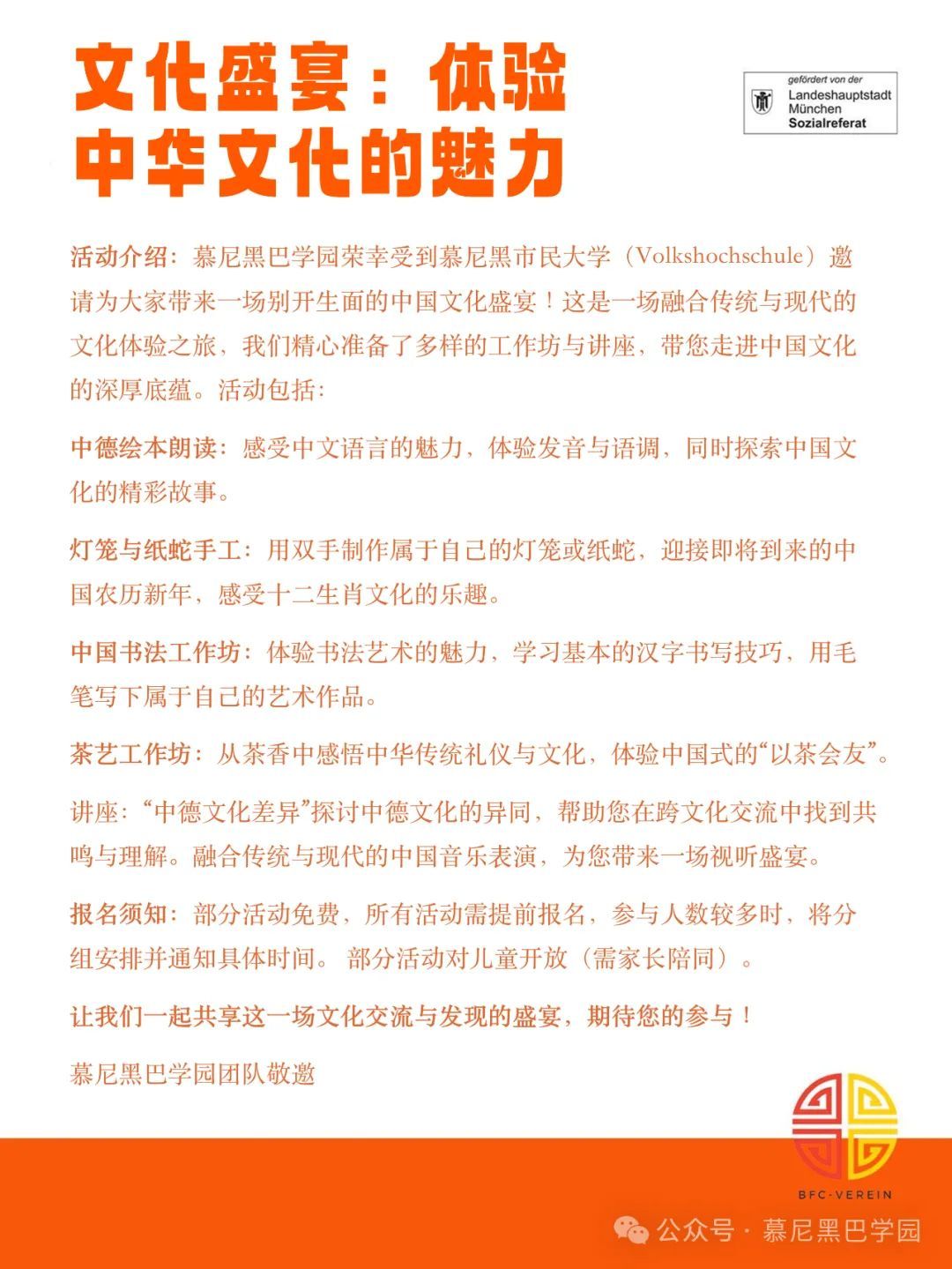



Do you have any questions about our news?
Please feel free to contact us with any questions or concerns about the art project. We look forward to welcoming your child to our school soon!




